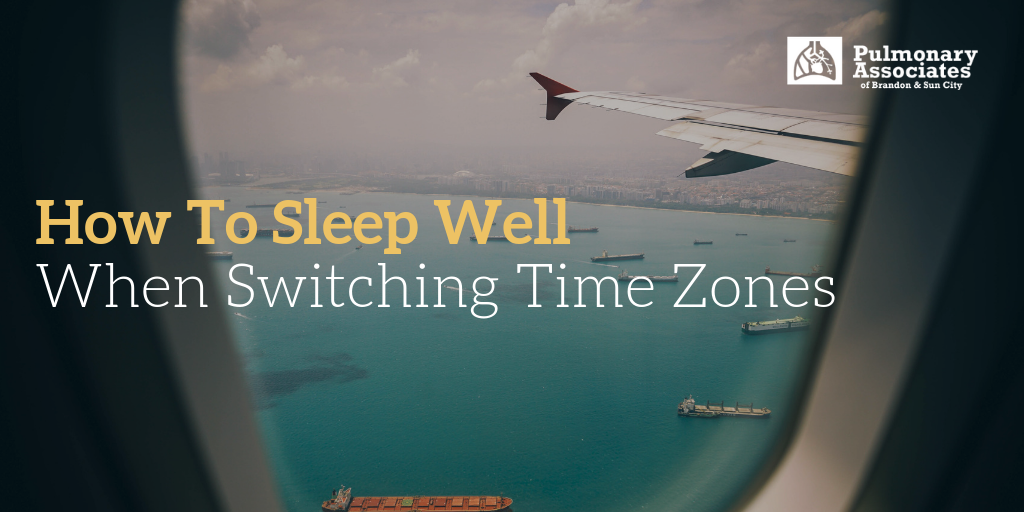Whether you’re busy racking up frequent flier miles traveling for work or just enjoy spending your vacation time jet-setting to distant locations, chances are you’ve experienced some jet lag. This is especially common when traveling to different time zones. Every day, millions of travelers struggle against jet lag, one of the most common sleep issues.
Studies have shown that the condition of jet lag results from disruptions to your body’s 24-hour circadian rhythm—otherwise known as your biological clock--caused by traveling to a different time zone. When traveling to a new time zone, our circadian rhythms are slow to adjust and remain on their original schedule for a few days. The outcome is difficulty falling asleep according to a new time schedule. You might be wondering how to get a good night sleep while also being able to travel to new time zones.
The good news is some simple behavioral adjustments can help minimize the side effects of jet lag.
Revamp Your Sleep Schedule
Anticipate time changes by getting up and going to bed earlier or later in the days prior to adjust to the new time zone. Try to avoid naps or going to bed right when you arrive, as these practices may keep you up longer.
Change Your Watch
While on the plane, be sure to adjust your watch to reflect the time zone you’re traveling to. Most Smartphones will automatically correct to the new time zone once you land.
Avoid Caffeine and Alcohol
Avoiding caffeine—or alcohol, for that matter—at least 3-4 hours before bed can help you avoid stimulant-caused issues with sleeping. Alcohol has also been known to worsen the symptoms of jet lag.
Stay Hydrated
Changes in altitude can dehydrate you more easily, whether it’s while on the plan or if you’re heading to a place at higher altitude. Be sure to drink plenty of water before and during your flight. Dehydration makes it more difficult for your body to adjust to a new rhythm.
Exercise—But Early
Exercise or movement during the day may help you fall asleep more easily in a new time zone. But be sure to avoid exercising too close to bedtime, which will most likely keep you awake.
Get Outside
When possible, try to get outside and be in the sunlight. Daylight is a powerful tool for regulating or resetting your biological clock and balancing your circadian rhythm.
Block it Out
Bringing earplugs and a sleep mask will help to reduce noise and block out the light while attempting to fall asleep.
Avoid Travel-Related Stress
Bringing elements of home, like your favorite pillow or blanket, can ease the nagging feeling of being in a new environment. Have the front desk send any hotel calls to voicemail and request a wake-up call in the morning in case you sleep through your alarm.
Find Your Perfect Sleep Environment
Whether we realize or not, most of us are affected by changes to temperature, noise, altitude, sleep surface and other environmental factors. Be cognizant of which factors affect you and ensure that you do your best to make your sleep environment a nurturing one.
Adjusting to time zones can be tricky, but if you practice these tips coping with or avoiding jet lag can be a much easier feat.

